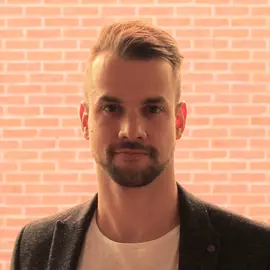Digital Transformation - Case Studies for Aviation Safety Standards - Modelling and Simulation (MODEL-SI)
MODEL-SI: Modelling and Simulation - EASA (European Union Aviation Safety Agency) Digital Transformation: Case Studies for Aviation Safety Standards
Result
This study focuses on the development of a modular Flight Simulation Model (FSM) for a Lift+Cruise eVTOL aircraft, capable of static, dynamic, and aeroelastic analyses. The FSM comprises Flight Mechanics and Aeroelastic modules, initially developed as low-fidelity (LF) physics-based models, with the flexibility to incorporate data-driven enhancements for improved aerodynamic modeling. Machine Learning (ML) techniques together with data fusion, such as Bayesian Neural Networks with Transfer Learning (BNN-TL) and Co-Kriging, were applied to enhance the fidelity of the rotor models, with BNN-TL providing superior accuracy. Comparisons between FSM simulations and flight test data demonstrated the reliability of the integrated model, particularly during transitions between hover and airplane modes, where aerodynamic perturbations from rotor and wing interactions were successfully captured.
Aerodynamic modeling of the rotors relied on multi-fidelity methods using the DUST code, which demonstrated good agreement with CFD results while reducing computational costs. Challenges with high-fidelity (HF) CFD approaches, including vorticity dissipation and grid resolution demands are still an open point, which would probably be partially mitigated by the consilation of GPU-based computing and/or the help of ML tecniques. The aeroelastic analysis validated the dynamic response, stability, and structural integrity of the eVTOL, confirming no instabilities through frequency response in helicopter and airplane modes (V-g plots analysis). Overall, the study showcases the benefits of a modular, multi-fidelity approach for VTOL modeling, enabling computational efficiency while achieving accuracy for certification purposes.
Description
The continuous improvement of machine learning (ML) methods could change the approachesfor the design and development of Vertical Take Off and Landing (VTOL) and drones and thereforelead to possible changes in certification and aviation standards. To analyze this topic practicallyand effectively, the idea is to develop a case study of a DT of a Twingtec drone. It is carried out byenhancing an initial physics-based mathematical model, exploiting data from high-fidelitynumerical simulations, computational fluid dynamics (CFD), and structural dynamics, as well asfrom flight testing. The “enhancement” concerns both accuracy and scope and is carried out viaconventional and ML techniques, each exploited at its best. The final digital technology (DT) isexpected to be a hybrid surrogate model-based DT, in which the necessary accuracy is providedby the initial physics-based model coupled with several surrogate models. The expected result is a living DT able to reliably explore the entire flight envelope as well as thedesign space by accounting for changes in mass, centre of gravity, and configuration. The DT assuch is expected to not only support certification but also continued airworthiness and follow thedrone through its operative life. The main objective of this research is to assess the impact of the deployment of digital solutionsin VTOLs and drones development, processes, and operations on the whole airworthinesscertification approach. It includes the safety standards and regulatory materials and how theycould change. The use of digital solutions for the certification of drones and/or their componentsand related equipment could be a new method of compliance demonstration. The potential ofthis method is increased efficiency and decreased risks in flight testing. The project is set as a case study on the Twingtec prototype. Finally, a roadmap to implement theneeded aviation regulation changes and training materials to share the knowledge are released.
Key data
Projectlead
Deputy Projectlead
Project team
Noé Pedrazzini, Anna Abà, Prof. Dr. Marcello Righi, David Anderegg, Sven Düzel, Christian Hauschel, Andrea Vaiuso, Oier Coretti, Moreno Apicella
Project status
completed, 12/2022 - 01/2025
Institute/Centre
Centre for Aviation (ZAV); Institute of Mechanical Systems (IMES)
Funding partner
Horizon Europe / EASA
Project budget
700'000 EUR
